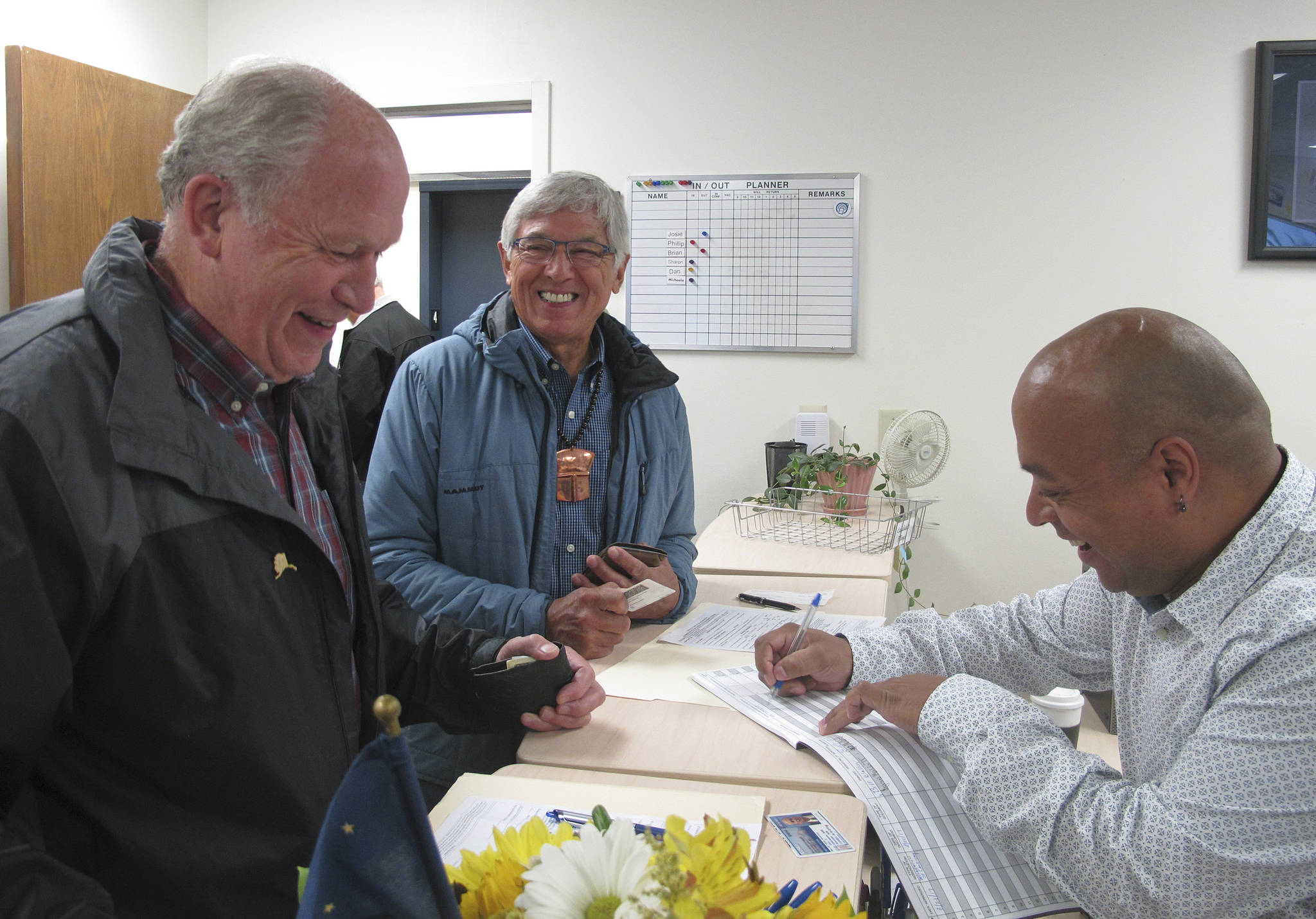JUNEAU — Alaska Gov. Bill Walker on Monday announced plans to seek re-election as an independent, saying he’s focused on a vision for the state and not on partisanship.
He and Lt. Gov. Byron Mallott filed candidate paperwork with the state Division of Elections. They also filed separate letters of intent with the Alaska Public Offices Commission.
Walker told reporters they plan make an independent run and to collect signatures necessary to qualify for next year’s ballot.
He said they announced their plans now because Alaskans should know what they’re going to do. He said he expects a lively race.
Walker changed his party affiliation from Republican to undeclared in joining forces with Mallott in 2014 to upset then-Gov. Sean Parnell, a Republican.
Mallott, a Democrat, that year abandoned his own run for governor to be Walker’s running mate, and the 2014 Walker-Mallott ticket won the support of state Democratic party leaders.
Mallott plans to remain a registered Democrat. Walker plans to remain politically unaffiliated.
The state Democratic party currently is suing the state, seeking the ability to have politically unaffiliated candidates run in the party’s primaries. The party push for letting nonaffiliated candidates in its primaries predates the 2016 U.S. Senate race.
When asked if they would consider running in the Democratic party if allowed, Walker said things sometimes change in an election process and “we typically don’t say never to anything, quite honestly.” But he said the path they announced Monday is the one they plan to pursue.
The administration has been an independent one and that will continue to be the focus, Mallott said.
Jay Parmley, executive director of the state Democratic party, said the party has been supportive of the Walker administration and continues to be supportive.
But he also said he’s confident that Democratic candidates will run for governor and lieutenant governor and that it’s still early.
The announcement that Walker and Mallott intend to run again was “a marker that needed to be sort of crossed off” and provides some clarity for potential Democratic challengers, Parmley said.
“It may deter, it might spur candidates. But at least it starts setting things into motion,” he said.
Many potential Republican candidates have expressed interest in the race, state GOP chairman Tuckerman Babcock said. So far, the highest-profile Republican to declare intentions to seek the GOP nomination is state Sen. Mike Dunleavy.
One of the major issues for Walker has been addressing a multibillion-dollar state budget deficit that’s persisted amid low oil prices. Oil prices began a freefall in 2014 and have stayed low.
He has yet to secure passage of some pieces he sees as key to a fiscal plan, including use of earnings from Alaska’s oil-wealth fund to help cover government costs and taxes — issues that have been hotly debated by legislators.
The House is controlled by a majority coalition composed largely of Democrats. The Senate has a Republican-led majority. Rating agencies have downgraded the state’s credit rating in the absence of a fiscal plan.
The Republican Governors Association came out against Walker Monday, citing the state’s budget deficit and credit downgrades on his watch as reasons.

